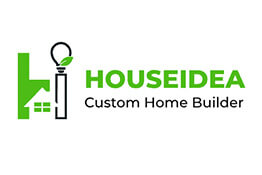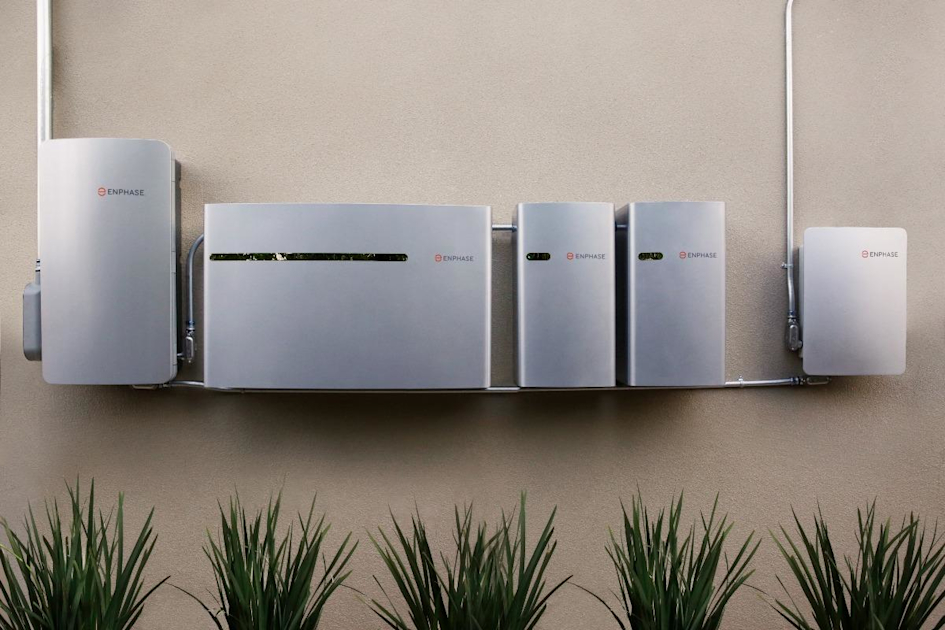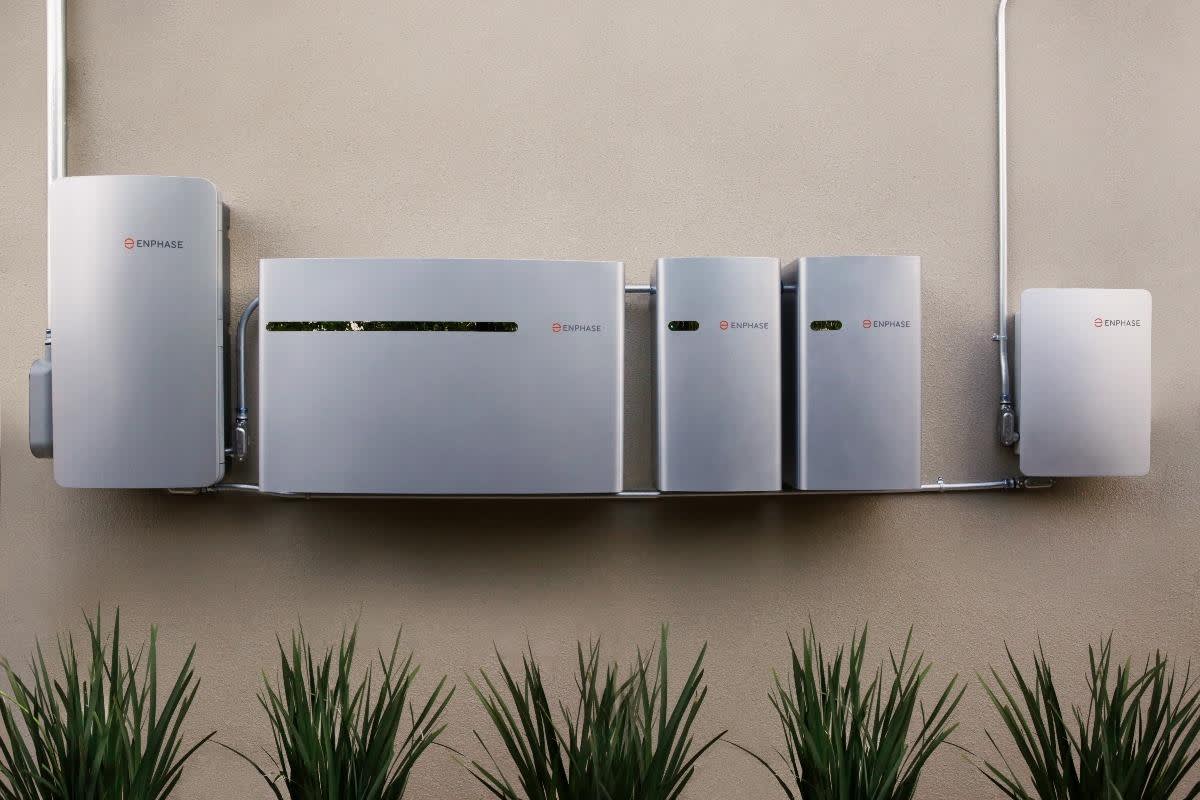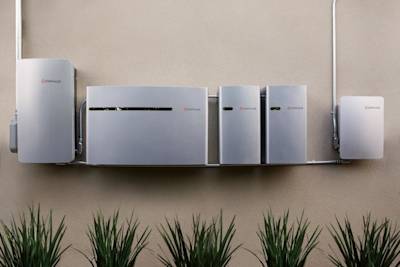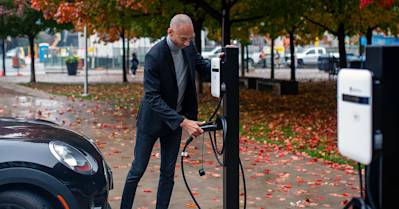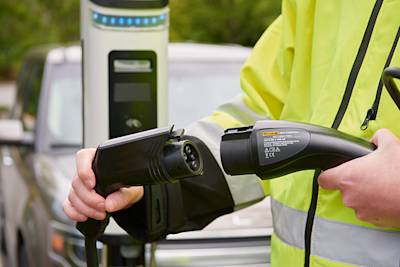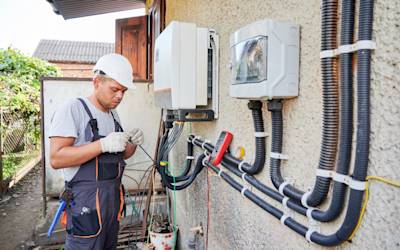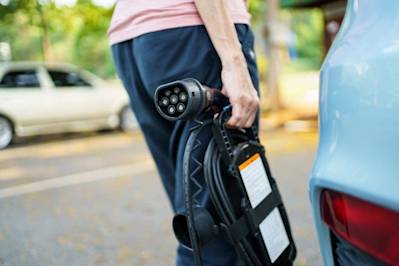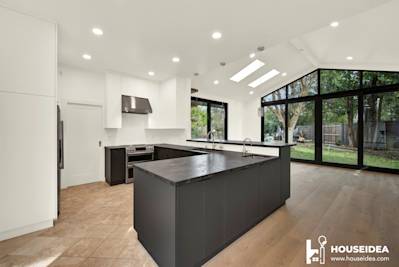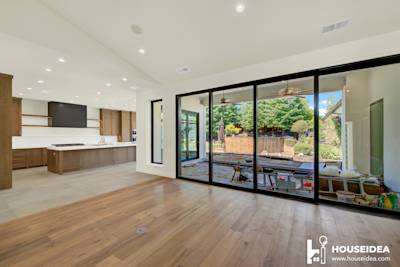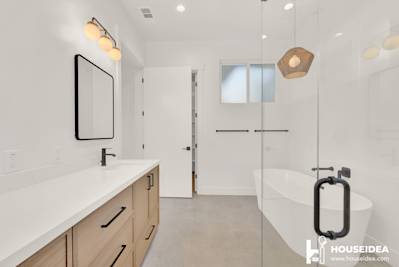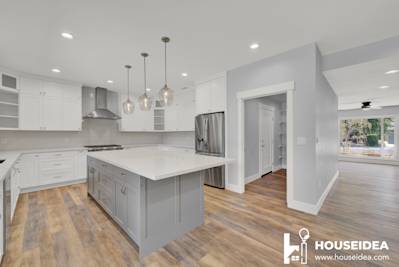Home backup batteries have become increasingly important in today's modern households. They provide a reliable source of power when the grid goes down, protecting against power outages and disruptions. In the era of growing dependence on technology, they bring peace of mind by ensuring that critical devices and appliances stay powered. Let's explore more about home backup batteries: what they are, how they work, key factors to consider during purchase, top battery technologies in the market, and the benefits of having one.
The Basics of Home Backup Batteries
Think of home backup batteries as your personal electric insurance policy. They're like enormous rechargeable batteries that store electricity for the times when you need them the most. While they serve the same function as generators, their silent and hassle-free operation sets them apart.
The Working Mechanism
Home backup batteries connect to your electrical panel and charge up using either your grid electricity or your solar panels, if you have any. When the power goes out, or if it gets too expensive during peak hours, the battery takes over as the primary power source for your home.
Choosing the Right Home Backup Battery
Several factors come into play when deciding on the right home backup battery. Here are some key aspects you should consider:
- Power rating: Power rating (measured in kilowatts, or kW) dictates how many appliances you can run simultaneously.
- Energy capacity: The capacity (measured in kilowatt-hours, kWh) tells you how long you can power these appliances.
- Round-trip efficiency: This reveals how much energy is retained after storage and retrieval. A higher efficiency is always better.
Moreover, you should factor in the installation costs, warranties, and the battery's lifespan before making your decision.
Top Home Backup Battery Technologies
Backup batteries come in different types, each having its strengths and weaknesses. However, lithium-ion batteries and lead-acid batteries are the two most popular technologies in the market for home use.
Lithium-ion Batteries
Lithium-ion batteries have become the gold standard in energy storage solutions. Their high energy density, long life span, and excellent round-trip efficiency make them the first choice for homeowners. Tesla Powerwall, LG Chem RESU, and Sonnen eco are some top lithium-ion home backup batteries.
Lead-Acid Batteries
Lead-acid batteries are the traditional choice for home backup energy storage. They are tried and tested technology, and their low initial cost makes them a preferred choice for many homeowners. However, their lower life span and efficiency compared to lithium-ion batteries are considerable downsides.
The Future of Home Backup Batteries
The demand for home backup batteries is constantly on the rise. With advancements in technology, we can expect even more efficient and cost-effective energy storage solutions in the future. As they become more commonplace, they'll play a crucial role in moving towards a more reliable, self-sufficient, and sustainable energy future.
Frequently Asked Questions about Home Backup Batteries
How do Home Backup Batteries work?
Home backup batteries are essentially large rechargeable batteries that store electricity generated from your home's solar panels or from the grid. When the grid power goes out, or during peak time when electricity is most expensive, your home can use the power stored in these batteries. This not only ensures you have power during outages but can also save money on your electricity bill.
What are the different types of Home Backup Batteries?
There are three main types of home backup batteries: Lead-Acid, Lithium-ion, and Flow. Lead-Acid batteries have been around the longest and are typically the most affordable, but they also have the shortest lifespan. Lithium-ion batteries are more efficient, last longer, and are now the most commonly used type. Flow batteries are less common for home use, but are known for their long life and high capacity.
Where should a home backup battery be installed?
Where you install a home backup battery depends on both the manufacturer's guidelines and your own personal preference. Some models can be installed inside a garage or basement, while others may require outdoor installation. Always follow the manufacturer's instructions for installation to ensure your system operates safely.
How long do backup batteries last?
A battery's lifespan depends on several factors, including the type of battery, how often it is used, and how it is maintained. On average, home backup battery systems can last between 5 and 15 years. Lithium-ion backup batteries tend to have a longer lifespan, often surpassing 10 years with regular use.
Are Home Backup Batteries safe?
Yes, home backup batteries are designed to be safe. However, like any electrical system, they must be installed and maintained correctly to ensure they don’t pose a hazard. Most home backup batteries have built-in safety features such as automatic shutdowns in case of a fault or extreme temperatures.
How much does a typical home backup battery cost?
The cost of a home backup battery can greatly vary depending on its capacity, type, and the brand. On average, they can range from $3,000 to over $20,000. This doesn't include the cost of installation, which can also vary.
Does a Home Backup Battery require any maintenance?
Most current home backup batteries require minimal maintenance, especially designs like Lithium-ion batteries. Yet, routine checks to ensure they're working properly and to identify any potential issues are always a good idea. Always follow the manufacturer's maintenance guidelines to keep your battery in good shape.
Can a Home Backup Battery power my entire house?
Whether a home backup battery can power your entire house depends on the battery's size and capacity and your household's power usage. Some systems are designed to power only necessary loads like refrigerators, heating systems, and lighting. Other larger systems can power everything in your house.
What happens to a Home Backup Battery when the power goes out?
When the power goes out and you have a backup battery installed, your house can switch to using the stored power in the battery. This process can be automatic depending on the setup of your system, allowing you to maintain power without interruption.
Can I use Home Backup Batteries with my solar panels?
Yes, home backup batteries are often used with solar panels. The electricity generated by your solar panels during the day can be stored in your backup battery to be used during the night or when the sun isn't shining.
Pros and Cons of Home Backup Batteries
Pros of Home Backup Batteries
Reliable Power Supply
The most notable benefit of home backup batteries is their ability to provide a consistent and reliable power supply. In case of blackouts or power outages, these batteries can kick in immediately and restore electricity to your home. This can prevent inconveniences and even dangerous situations that can arise from a sudden loss of power.
Energy Independence
Another major pro of home backup batteries is the energy independence they offer. Coupled with renewable energy sources like solar panels, these batteries can store excess power for use when the panels aren't generating electricity, such as during the night or on cloudy days. This means that homes can rely less on the grid, reducing their energy bills and environmental impact.
Reduce Energy Costs
- Home backup batteries can be programmed to use energy during off-peak hours when rates are lower and store it for use during peak hours, saving homeowners on their energy bills.
- Through a process known as 'load shifting', home backup batteries can help homeowners maximize their use of solar energy, thereby reducing their reliance on grid electricity.
- With advanced technology available, some backup batteries can even sell excess energy back to the grid, creating an additional income stream for homeowners.
Increased Home Value
Installing a home backup battery can also increase the value of your home. Potential home buyers often see the addition of a backup power system as a valuable asset, enhancing the overall appeal of the property.
Cons of Home Backup Batteries
High Initial Costs
While home backup batteries can help you save money in the long run, the initial cost can be quite high. The price not just includes the cost of the battery, but also other expenses like installation and any necessary home modifications. For some homeowners, this upfront cost can be a barrier.
Battery Life and Deterioration
Another downside of home backup batteries is that they have a limited lifespan. The battery's ability to store and deliver power diminishes over time, meaning it will eventually need to be replaced. The rate of degradation varies depending on the use and quality of the battery. Some may last up to 10 years, while others might need replacing after just 5 years.
Energy Capacity Limitations
- While home backup batteries are capable of supplying energy during power outages, their capacity is limited. In situations where there's extended lack of power, the battery might not be able to support all appliances and systems in the house for a long time.
- Sizing of the home backup battery is crucial. If it's too small, it may not meet your power needs. But if it's too large, you may end up spending more than necessary both on purchasing and maintaining it.
Maintenance Requirements
Home backup batteries, like any other electronic equipment, require regular maintenance to ensure optimal performance. While some batteries have lower maintenance requirements than others, it's still an added responsibility for homeowners. Failure to maintain the unit could result in a diminished battery life and lower output.
Summary
Home Backup Batteries are all about providing peace of mind and security. When the unexpected happens, like power outages from storms, equipment failures or grid shutdowns, these batteries step in to keep your home up and running. They can power crucial appliances and devices in your house for hours, even days, depending on the capacity. It's all about remaining connected and functional, no matter what.
It's also worth noting that Home Backup Batteries are renewable energy friendly. They can be coupled with solar panels, allowing homeowners to store surplus solar energy. This stored energy can be utilised during the night, when solar panels aren't producing power, or during those power outages. What's more, this symbiotic relationship between batteries and solar panels can significantly reduce your reliance on grid power, which can result in substantial savings.
To sum it all up, if you're considering a reliable power alternative, Home Backup Batteries should be high on your list. They offer a seamless solution to power outages, a sustainable way to reduce your carbon footprint and a savvy way to save on electricity bills. So go on, give them some serious thought - it could be the change that you, and the environment, need.
About HouseIdea
Welcome to HouseIdea! We're based in Sacramento, CA, and we're passionate about turning houses into homes. We believe your living space should be a reflection of your personal style and taste. Established with the mission to help you design and remodel your home, we're ready to brainstorm with you, design for you, and create something spectacular. Whether it's a minor refresh or a major renovation, our team of professionals puts your vision first. Welcome to the family!
Tags: Home Backup Batteries, Emergency Power, Energy Storage,
